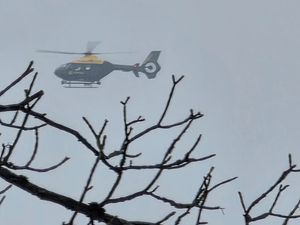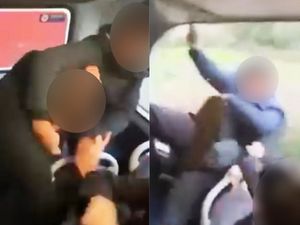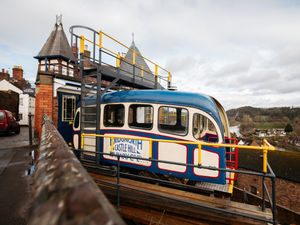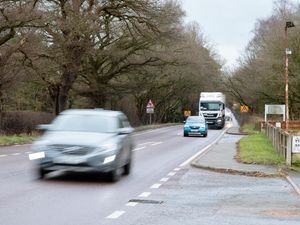Trains operator vows to improve after rocky start
A train company beset with problems since taking over services in Shropshire and Wales today pledged to improve.
Transport for Wales has been forced to cancel a quarter of services since it took over from Arriva Trains Wales.
It has led to disruption and delays for passengers as the company attempts to ensure its rolling stock is up to scratch. When services do run, they are often short of carriages, adding to crowding.
Shropshire Star comment: Honesty is refreshing but beware
The firm says it has inherited problems after taking on the franchise on October 14. It has also been affected by poor weather.
Today one of the men attempting to solve the problems issued an apology and pledged to get services running efficiently in 2019.
Train depot head of production David Watts said: “I understand people have paid for their ticket and expect a service and that it’s frustrating if a train doesn’t turn up for whatever reason.”
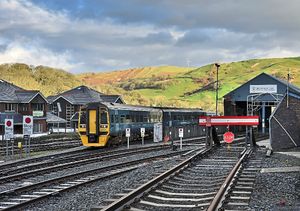
He said autumn storms had added to the problems because carriages had been damaged by debris falling on the line.
Transport For Wales had promised a better and more regular service before taking over. But it was forced to publish full page adverts of apology in newspapers after it became clear 36 out of 127 trains were being repaired, causing delays and cancellations.
Transport for Wales chief operating officer Rick Davey and Network Rail chief operating officer Alison Thompson signed the adverts, telling passengers they deserved better.
Mr Watts said his team of technicians were working tirelessly to keep rolling stock inherited from Arriva on track until new trains could be introduced.
He said: “We are really proud of these trains. But there are a lot of factors and things that can knock us out of kilter.”
Rail company working to get back on track
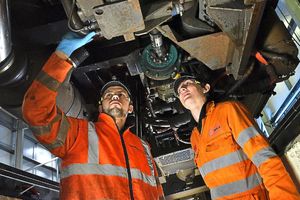
It was supposed to be a new dawn for our train services. The promise of better, more regular, services across Shropshire had regular passengers excited.
They imagined that their sardine-like commuting days might finally be at an end.
But the new franchise for the lines connecting Wales and Birmingham, which criss-cross Shropshire and the West Midlands, began with delays, cancellations and fewer carriages at busy times.
On October 14 Arriva Trains Wales handed the lines to Transport For Wales with the promise of better, more regular services – which the company says it still intends to provide.
But last month the company admitted more than a quarter of trains in Wales, including the lines running through Shrewsbury, Telford and Wolverhampton, were out of service.
“I understand people have paid for their ticket and expect a service and that it’s frustrating if a train doesn’t turn up for whatever reason,” says David Watts, who is the head of production for TfW at one of its train repair depots at Machynlleth.
Beside him is a train which has been serviced, and its engine repaired. There have been a lot of them in the depot recently, thanks in part to the problems created by Storm Callum.
“During the storm we had trees on the line, sheds were blowing out of gardens onto the line, so we had trains with a lot of damage.
Apologised
“Some of it was superficial where the body work was damaged, but that still takes time to repair. But if you have something big on the line that goes under the train then that has caused a lot of damage; it’ll knock pipes off, electrical safety systems can be knocked off, and that will take a train out of service for two or three days, or maybe more. One train that had a lot of damage had to be taken out of service for a couple of weeks.”
As problems mounted on the line, TfW and Network Rail took out full page ads in newspapers saying 36 of Wales’ 127 trains were being repaired. They apologised for the delays and admitted that customers deserved better.
David and his teams have been under pressure to make sure they are getting trains back onto the lines.
“It has been a challenge,” he says. “We try and provide as many trains as we can for the passengers, but we have to make sure they are fit and safe.”
On the Cambrian line between Aberystwyth and Shrewsbury there are 24 of the 158 class trains, with four scheduled for maintenance at any one time while 20 are out and about. But during the problems there were many occasions when more were out of service. That caused the struggles for the network.
“It was purely because we had damage,” says David, who has worked at the depot for 20 years. “Having that one less causes massive problems. All the fleets were affected.”
Traction
As he walks alongside the colossal, motionless train, he indicates damage to many of the wheels.
“This is a steel wheel on a steel rail and that is why it can move so easily, there is really limited resistance,” he explains, comparing it with a flat tyre on a bicycle. “But what happens when you get a slippy piece of rail, the wheel will come to a stand and you will get a flat spot on a wheel.”
The 158 Trains have Wheel Slip Protection, which recognises whether a wheel is spinning or sliding. A pipe then spits a coarse grit at the wheel to help it gain traction.
“The problem is the 150 Trains down in Cardiff have been really hit by wheel flats and they don’t have this WSP system at the moment, although Transport For Wales are investing in installing it,”says David. “Our trains up here were working harder and doing more mileage and as a result started picking up more flats as well.
“Once you have a flat on the wheel that meets a specification it takes it out of service. If there’s damage then that’s the train out of service. Having the flats means that it will continue to cause more damage to the train the longer it runs with them.”
Services have now returned to normal, but those working to keep the lines running as effectively as possible have been working around the clock and do not take their jobs likely. Still, more trains will be added to the network as the franchise matures to help reduce congestion.
“If a train is running along at 60mph and a tree blows down in front of it then there’s going to be a problem,” says David. “The train will have to come out of service. That’s the case for any operator in the country.”


